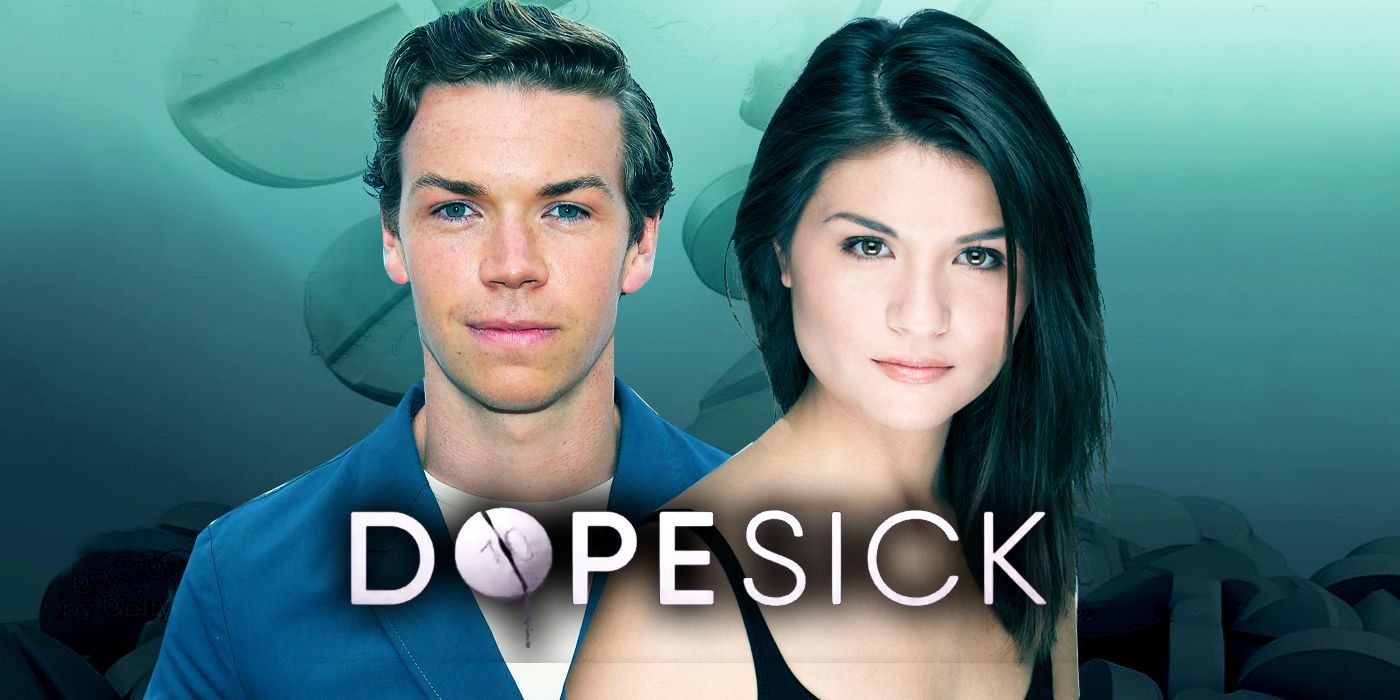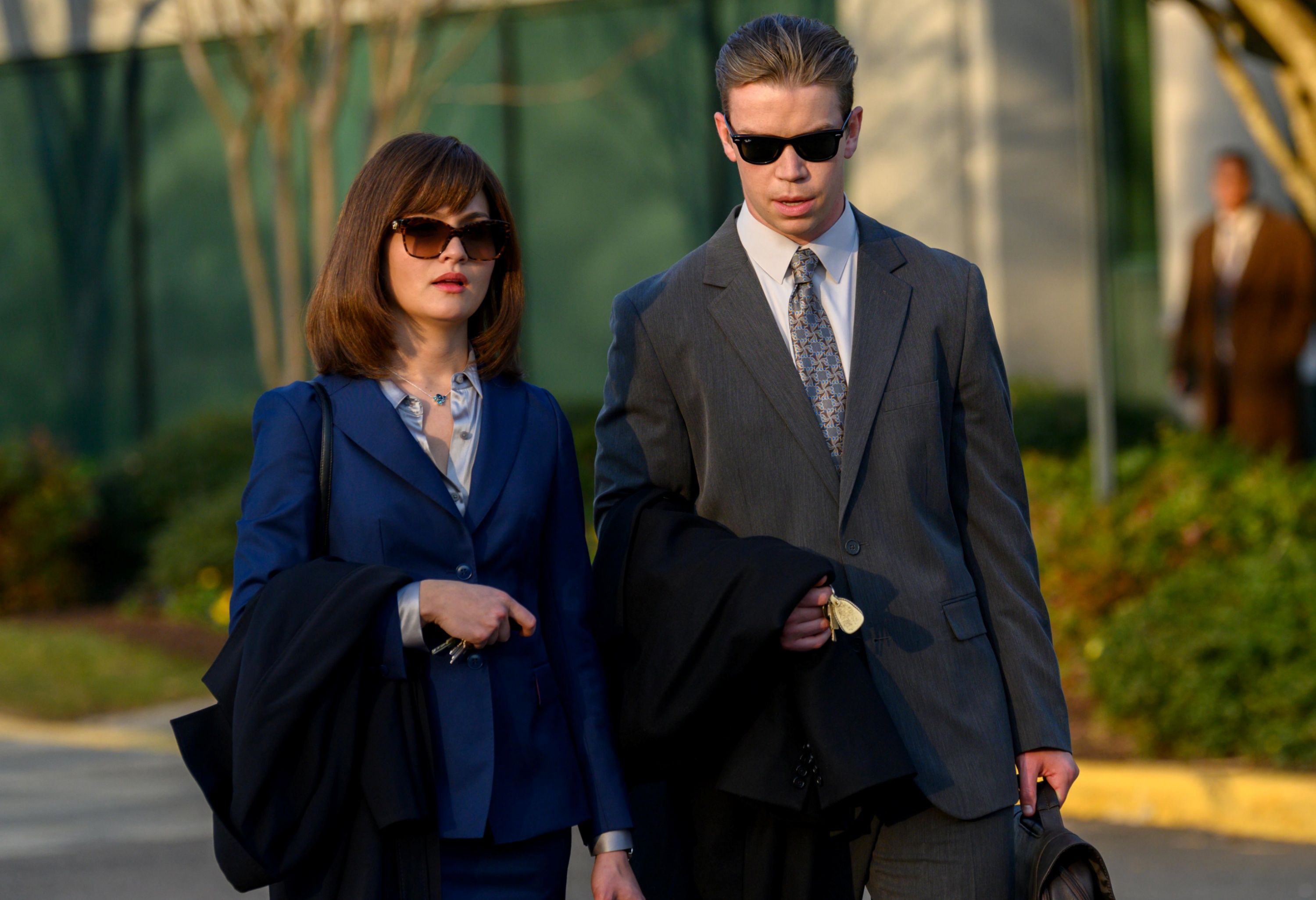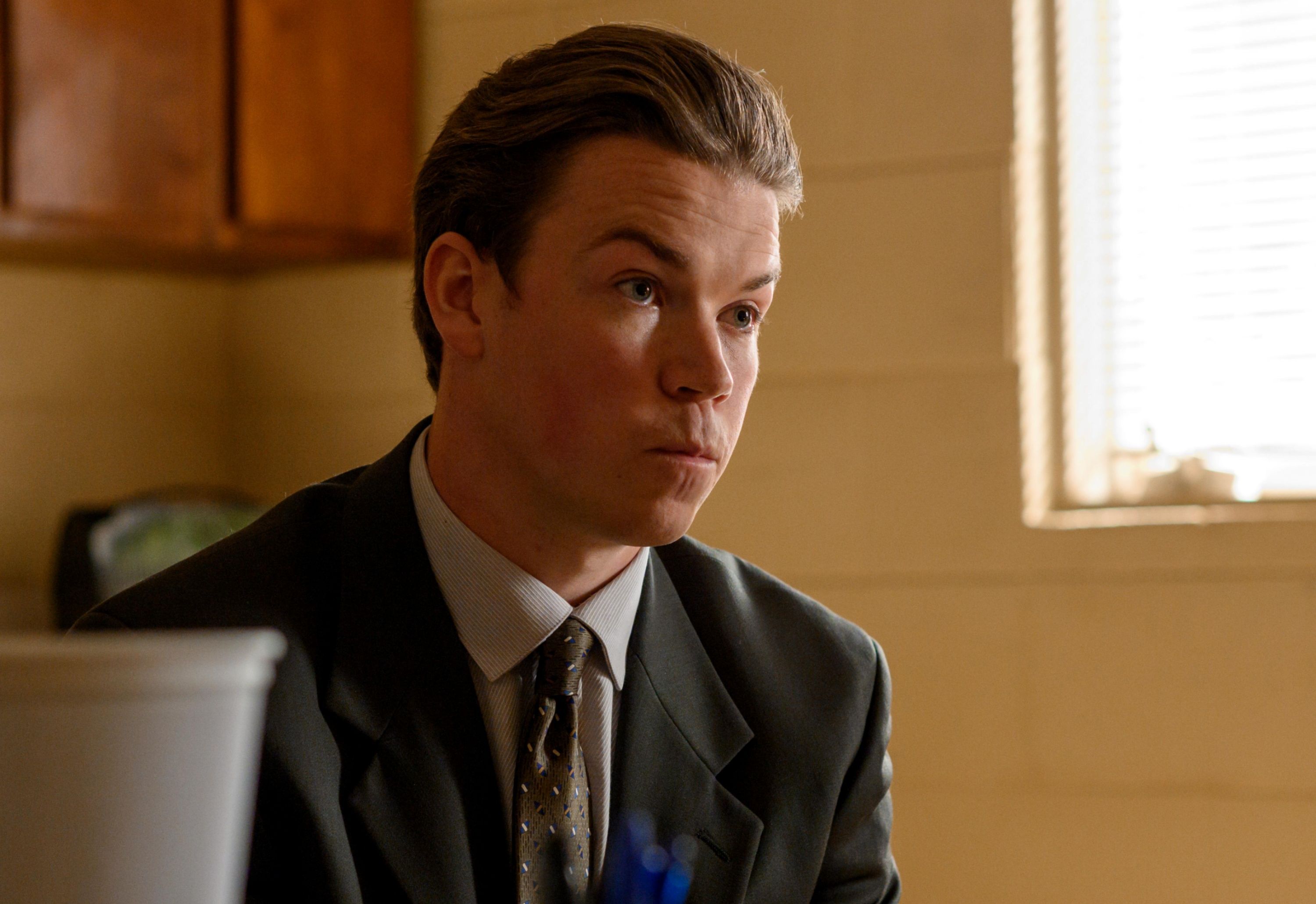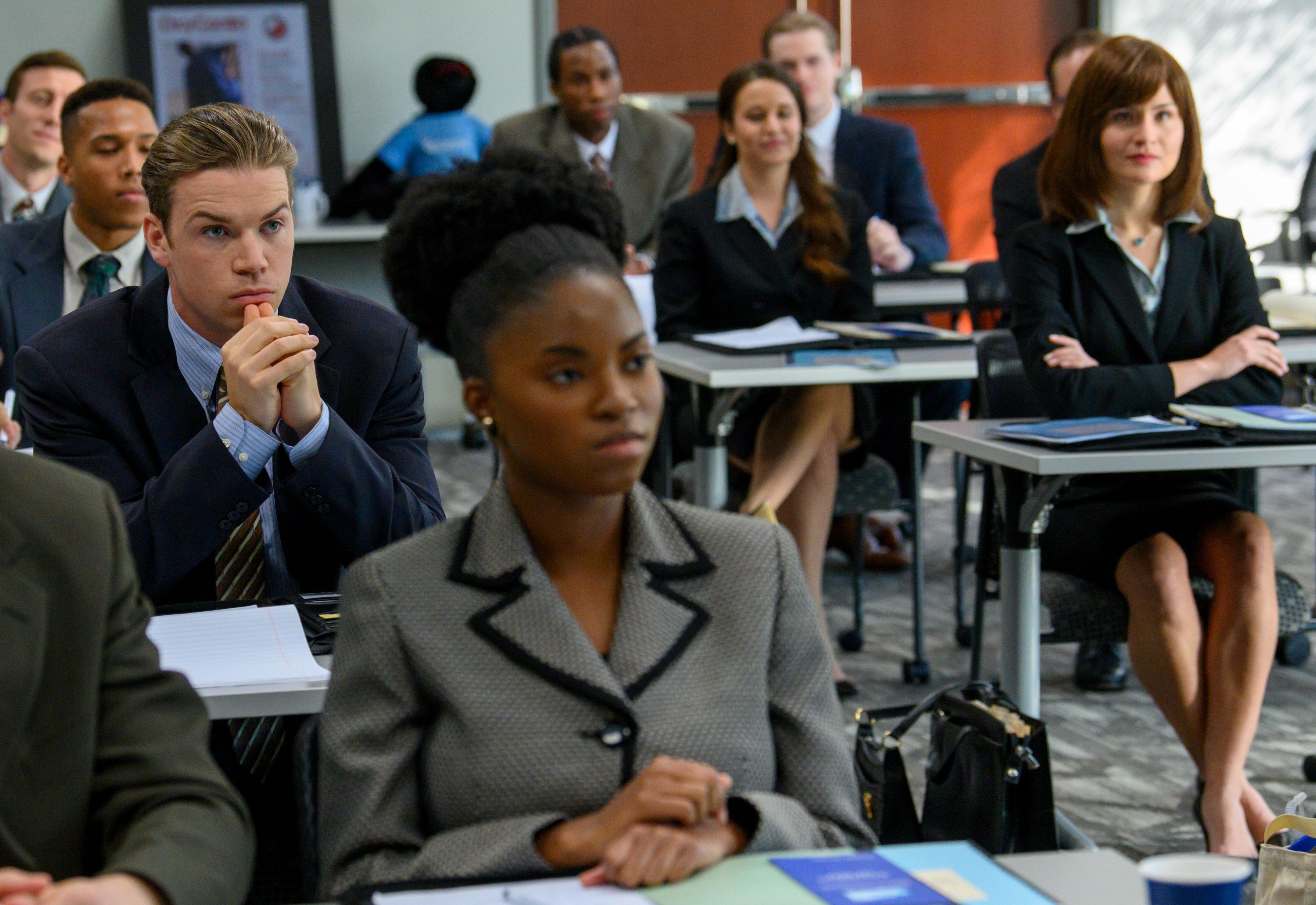From creator Danny Strong and inspired by the best-selling book of the same name, the limited Hulu series Dopesick delves into how Purdue Pharma created the worst drug epidemic in American history when they pushed their opioid while lying about how addictive it truly is. Threading stories about Big Pharma, a small mining community, and the DEA, the villains become clear while the ordinary people try to struggle through each day just to make it to the next.
During this interview with Collider, which you can both watch and read, co-stars Will Poulter and Phillipa Soo, who both play Purdue pharmaceutical reps in the series, talked about telling such a frustrating story, learning about the people behind the opioid crisis, how they approached playing their characters, how working with Michael Keaton is a dream come true, the freedom in playing someone as blunt as Amber, and the conversation they hope this series starts.
Collider: This story is heartbreaking, it’s tragic, and it made me want to scream multiple times while I was watching it. What was it about this project that made you want to tell this story and did you know how frustrating this story would be, when you started telling it?
PHILLIPA SOO: I feel you on that sentiment. It’s very frustrating to watch this story unfold. With a story like this, which is based in truth, it’s really important to key into that discomfort that we feel when we watch stories like this because, ultimately, this is holding up a mirror to ourselves, especially as Americans. We have to look into this mirror to this story and say, “What are we not doing right? Where have we gone wrong?” And really coming to terms with that discomfort and realizing that, not only is this a story about systemic issues that are very deep and have a long history, but also there are people behind all of these issues. There’s a humanity at stake. That’s what this story does so well. It really gets into the lives of these characters that are based on real people, and their struggles and their tragedies. What (creator) Danny [Strong] did so beautifully is depict these stories and the real lives of these people.
WILL POULTER: A hundred percent. I would echo that. I didn’t know a great deal about the opioid epidemic in America, but it was a subject matter that I was vaguely aware of and intrigued by and concerned by, certainly, seeing the facts were reflecting a growing issue, as opposed to one that was seemingly being dealt with and addressed adequately. And then, when Dopesick came along, it was comforting to see something that was based in truth, but through the kind of dramatization that was actually humanizing the story, and making it more understandable and accessible, and explaining that it’s down to human error and people making these kinds of problematic decisions in positions of power, to take advantage of hardworking American citizens. It was a story that felt like it really needed to be told because, at its core, it’s a story about social justice and about drawing people’s attention to exactly how America got to this place and who needs to be held accountable. Furthermore, people who ought not to have been vilified, have been vilified. The victims of opioid addiction have been, in many regards, made the villains in the story for far too long, and Dopesick seeks to address that and course correct the narrative.
How did you approach these characters? How did you approach humanizing individuals who really are helping to ruin the lives of so many people? I know actors talk about having to like their character, but do you start from a place of liking your character when your character is doing things like this?
SOO: I always start from a place of, what do I know? Sometimes that’s in the text, and sometimes that’s my responsibility to imagine what that would be for myself, especially since I don’t play a character based off of a real person. I certainly think that there are many people who have been in a similar position to Amber and, ultimately, what it comes down to is, what is at stake here? What do I know about where I’m coming from, what I want, what is in my way of getting that, and how do I get it? Getting to work on incredible writing like this, it makes it really easy to explore those really important questions.
POULTER: It was an interesting creative space to operate in because, like Amber, Billy is an amalgam and composite of several different people who would have worked in similar roles for Purdue. So, I wasn’t tied down, in any way. There was an opportunity to interpret what Danny had written, but so much of what makes Billy was already on the page. It was really intriguing to me to see a young person go into this with initially honest intentions, but get caught up in what was quite clearly a very problematic work culture at Purdue, where they were being incentivized to go against what was objectively the correct and moral things to do, in pursuit of financial success, in an effort to climb the corporate ladder. Without getting into spoiler territory or giving too much away, for me personally, getting to explore that over the arc of a season, and to wrestle with those moral questions throughout was a really great opportunity and key to humanizing the character.
Will, what was it like to explore the dynamic between Billy and Dr. Finnix, and what was it like to have the experience of working with Michael Keaton? They develop almost a father-son relationship, even though Billy is manipulating him the entire time.
POULTER: Yeah, the Finnix-Billy relationship is key to the success and the enjoyment that Billy feels, initially, in the role, but also is a big contributor to the moral difficulties that he faces along the way. He does grow so close to Finnix and he does become increasingly aware of how disingenuous that relationship is, the further they go. And for me to work with Michael Keaton was obviously a bit of a dream come true. He’s phenomenal and I was so lucky to have so many scenes with them. The Billy-Finnix relationship does model a father-son relationship. In my mind, Billy probably belonged to a family of really exceptional academics and always felt an insecurity about the fact that he didn’t quite belong and his skills were more as a salesman, simply put. In Finnix, he finds someone who also is very good at talking to people and making people feel comfortable. Billy arguably is closer to Finnix than he probably is his own father, to my mind. Me and Danny, being the writer, clicked over that as a concept and ran with it.
Phillipa, Amber is somebody who definitely is blunt and she’s pretty frank about some of the things she says. Is there something fun and freeing in playing a woman like her, who really does say what she wants to people?
SOO: Absolutely. I just loved, from the beginning, that Amber really just had no filter. Her BS meter was super sensitive. She could read you like nobody else. And for me, just based on roles that I’ve previously played, it was really fun to play someone that wasn’t necessarily the nicest person, but was definitely a person with a beating heart. Maybe it’s a little harder for her to access that beating heart, but she tries. She’s flawed. That’s always fun to play.
How hard is it to become invested in this story and have a hand in telling this, knowing that there’s still no resolution for all of these lives and families that have been affected and have been destroyed by this? When you tell a real life story like that, that doesn’t have a happy ending or really any ending, is it hard to have that weigh on you and to let that go? Do you just have the close the book on it when you’re done?
POULTER: It’s hard to say because the issue is so widespread and far from reaching its conclusion. In many ways, the victims of opioid addiction have suffered irreparable damage. I don’t think we’re under any illusions about how much this show, ultimately being a piece of entertainment, can go towards repairing some of that damage. The hope is that we’re able to stimulate conversation around the damages caused by opioid addiction and that this brings attention to the social action and political work that’s being done to try to address some of that damage. Where reparations and compensations can be made, we hope that the show will just draw more attention to that and make folks more aware. When you involve yourself in projects that do have these social applications, it’s hard not to feel connections to the cause that go beyond when you call a wrap. This certainly woke me up to a lot of things about addiction and the opioid crisis that I wasn’t as aware of. So, I do want to continue to try to find some way of participating in that space, after Dopesick comes out.
SOO: It certainly is a piece that lends itself to starting a conversation and to just be the beginning of the kinds of questions that we should be asking and answers that we should be seeking in our own lives and our own communities.
Dopesick is available to stream at Hulu.




